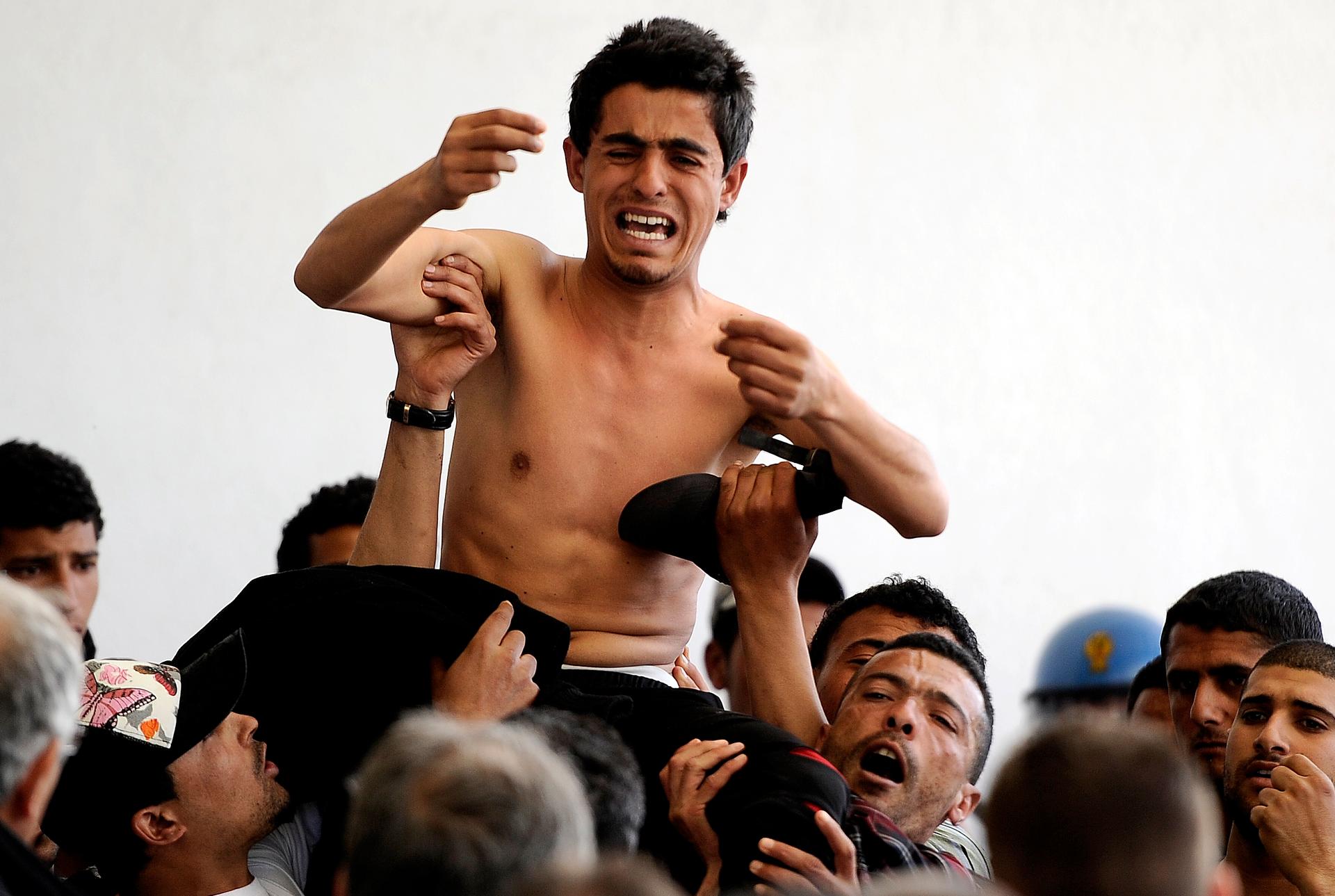Tunisia seeks Ben Ali on manslaughter, drug trafficking charges
Some of the 30 Tunisian migrants kept at the Lampedusa reception center protest against their repatriation at Lampedusa airport on April 12, 2011. Around 26,000 undocumented migrants have arrived in Italy so far this year, including around 21,000 who said they were from Tunisia, claiming they were fleeing a grim economic situation after the political revolution in January.
Tunisia has drawn up 18 charges, including murder and drug-trafficking, against former President Zine al-Abidine Ben Ali, whose January ouster triggered upheaval in the Middle East.
Ben Ali fled Tunisia with his wife and an entourage of wealthy family members and advisers to Saudi Arabia in January, and an international warrant remains out for his arrest. Thirty-three members of his family have already been arrested on suspicion of plundering the country's resources, the BBC reports.
Tunisia has already asked Ottawa to extradite and freeze the accounts of Ben Ali's wealthy brother-in-law Belhassen Trabelsi, who reportedly flew on a private jet to Montreal on Jan. 20 with his wife and children, according to Agence France-Presse.
Justice Minister Lazhar Karoui Chebbi said in an interview on state TV late Wednesday that: "The accusations include murder, conspiracy against the security of the state as well as trafficking and the use of drugs."
The charges were among 44 to be made against Ben Ali, his family and some former ministers.
Ben Ali has been accused of ordering security forces to crack down on about a month of protests during which around 200 people were killed, AFP reported, citing U.N. figures.
Officials were exploring legal ways to extradite Ben Ali from Saudi Arabia to face trial, said Chebbi, a member of the interim Tunisian government.
Tunisia announced Jan. 26 that it had asked Interpol to help arrest Ben Ali, his wife Leila Trabelsi and other members of the family.
According to the Telegraph, Ben Ali is under the protection of the Saudi king, but he will never be able to travel freely.
Chebbi said Tunisia's transitional government was compiling a file to support its demand for the extradition of the former president.
A Tunisian delegation is set to visit the Interpol headquarters in Lyon, France, to accelerate the process of executing the arrest warrants, Chebbi said.
Meanwhile, Angelina Jolie has visited the Tunisia-Libya border in her capacity as UNHCR Goodwill Ambassador, visiting Bangaldeshi migrant workers stuck in refugee camps there.
— Freya Petersen
